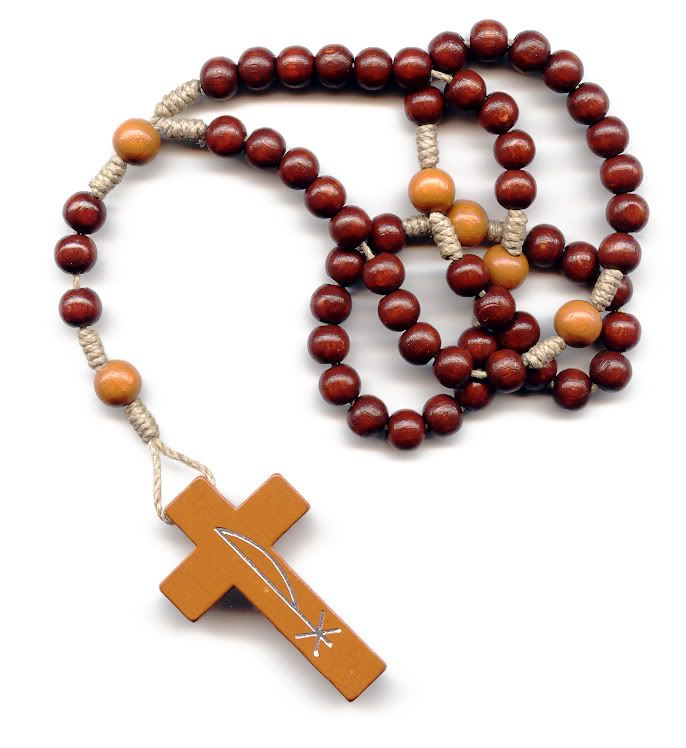
Click here for link to book purchase!
His other book, Domestic Violence: What Every Pastor Needs to Know
To end domestic violence, hospital chaplain the Rev. Al Miles of Hawaii believes more men and women of God must learn and then speak, preach and teach the truth about what it is, how widespread it is and how some Christian teachings can be twisted to condone, deny and exacerbate it.
Speaking recently at several gatherings in Spokane, he said domestic violence happens in the religious community as much as in the secular community.
One day he had a call from Carol, who was in the emergency room. Her loving, Christian boyfriend had broken her jaw.
“She did not grow up in a violent home, but a loving one,” he said. “I came and offered care, love and prayer. She is my youngest sister.
“We need to treat every victim of domestic violence or sexual assault as our sister, mother, daughter, granddaughter or friend,” Al said, “because those are the victims.”
He travels and speaks 20 times a year to awaken people to the hidden realities of the violence.
“There are survivors here. There are perpetrators here, too,” he said after prayers, songs and a biblical mini-drama at the Berachah Church. “There are survivors and perpetrators in pews and pulpits.”
After defining the range of emotional, mental, spiritual, sexual and physical violence at one clergy retreat, half of the male clergy realized they had said and done such things, but didn’t consider it abuse. They said his descriptions would “include everyone.”
“Name-calling is not illegal, as emotional abuse, but is immoral and inappropriate,” Al said.
“When women hear about tactics abusers use, many finally put their finger on what made them feel uncomfortable, afraid and ashamed,” he continued.
“Society and the church minimize abuse, encouraging denial and entitlement,” Al said. “We must speak the truth and work together to end domestic violence and sexual assault.”
While Scripture is a tool for healing, perpetrators often misuse it to justify their abuse.
“In John 13:34-35, Jesus gave a new commandment: ‘Love one another as I have loved you,’” Al said. “In love, there is no cursing, raping, strangling, threatening or violence.
“Across the country, I hear of male clergy and laity praising God and then raping, cursing, strangling, threatening and beating. It’s a crime and a sin. God did not ordain the horrors survivors experience nor empower perpetrators to abuse because of being male.”
“Mary’s husband beat, threatened and raped her many Sunday afternoons after preaching spirit-filled sermons. Their son hid his face in a pillow to muffle his mother’s pleas to stop,” Al said.
“Domestic violence is a pattern of behavior in which a person uses coercion, harassment, deception, humiliation, threat and force to establish and maintain power and control. It’s not about someone snapping, losing it, being pushed or being nagged until he can’t take it. It’s about power and control. The person does not ‘lose it’ in front of his commanding officer, in the pastor’s office or a business office. He ‘loses it’ with his wife and children.
“It’s not about being sick, but about being slick,” Al said.
Who are men who abuse? Athletes, construction workers, physicians, attorneys, pastors, fathers, uncles, brothers, anyone, he said, noting that he focuses on male abusers, because they are 95 percent of the perpetrators.
Who are the women violated? They work in all jobs and in homes. They are mothers, sisters, friends, daughters and granddaughters, he said.
Beyond physical abuse or sexual assault, he said domestic violence includes emotional, psychological and spiritual abuse.
First, a husband establishes control by cutting his wife off from contact with friends and family, dictating who she sees, what she wears, how she styles her hair, when she uses the car, how much money she has, what she does and where she goes.
From social isolation and control, the behavior escalates into psychological battering with name-calling from sexual slanders to putdowns, such as “stupid.”
Then come threats or destruction of property or pets, showing what the man can do to the woman, Al said.
“When Sarah declined sex one night, Ted beat a brick wall until the wall and his hands were covered with blood. She never turned him down again. She knew the wall was her body,” Al said.
Some pastors think it’s impossible for a married man to abuse, because a wife is a man’s property, he noted, but “no means no, and sexual assault is a crime even in marriage.”
Abuse may escalate to beatings, stabbing, shooting, strangulation or just blocking her from leaving a room.
Often people do not believe a woman who says she has been abused if they see no bruises.
“Emotional and psychological abuse leave no visible bruises, and perpetrators who claim to be out of control somehow hit so no bruises are visible,” said Al.
“Spiritual abuse misuses God, Jesus, sacred texts, doctrines and teachings to support male dominance,” Al said.
The oft-quoted justification from Ephesians 5:22 that wives are to be subject to their husbands leaves out verse 21 and following verses that say a man and a woman are to be subject to and responsible to each other.
“Using Christianity to justify abuse is blasphemy,” Al said. “What is it like for a pastor’s wife when the congregation believes him—the preacher who says wonderful things, kisses babies and visits them—then blames her for being abused or his having a mistress, and expects her to leave?
“What can we do? We need to keep as a top priority the safety of the victims—women and children—over keeping a marriage together,” he said.
Once clergy preach and teach about domestic violence, they discover how many women suffer, he said, advising clergy to know qualified domestic violence counselors and refer victims to them, rather than trying to do the counseling themselves.
Al knows his limits and does not counsel victims. He refers them to trained domestic violence counselors even if they are not Christian.
“We need to hold men accountable, not look the other way or blame the woman. We need to direct men into batterer-specific treatment, not anger management, where many learn new tactics.
“Once people thought abusers were angry and out of control,” he said, “but we realize they are in control. Anger is a feeling. Violence is a behavior.”
In a Wednesday workshop, he asserted: “Domestic violence is everyone’s business. We need to join together as people of different races, cultures and religions to fight domestic violence and sexual assault.”
He described an appropriate response by a church: A deacon admitted abusing his wife. The board removed him from office and encouraged him to enter offender-specific help. His wife sought safety and care through service providers. Although the church board continued to relate with the man, they knew how to do it without colluding.
In a contrasting example, after a pastor’s wife accused him of marital rape, beating, strangling and cursing her, he admitted it to the council, confessed, cried and said it would not happen again. The church asked him to confess publicly. They asked his wife to forgive him.
“It’s easy to cry contrived tears one Sunday and be in the pulpit the next as if nothing happened,” Al said.
Participants listed reasons women stay: fear, economics, dependency, low self-esteem, religious reasons, social norms, families, no support system, no resources, children, pride, shame and submission.
He added other reasons:
• An attractive man often charms his way into a woman’s life and preys on her vulnerability.
• Churches advise wives to stay with, pray for and obey their husbands.
• Many wives love their husbands and want the abuse to end, not the relationship.
Al then discussed some myths and realities about abuse:
• Fewer than 20 percent of abusers have a diagnosed mental disorder.
• Violence is an act of choice, not anger.
• Growing up in an abusive home, while a risk factor, is no guarantee that a boy will abuse as a man. Violence is behavior learned in society.
• Women stay for many reasons, not because they like being abused.
• Women do not provoke violence. Violence is a perpetrator’s choice.
• Some perpetrators work and some are unemployed.
• Some have low self esteem, and some are confident and charismatic.
• Abuse runs across races and income levels.
• Alcohol and drug abuse may make people more paranoid or aggressive, but they do not cause abuse. Both abuse and addiction need to be addressed.
• Marital counseling, when abuse is occurring or suspected, may endanger a woman because of something she says or doesn’t say in a session.
Al described five “pillars of Christian teaching” that are counterproductive responses to domestic violence:
1) Marriage is sacred: An abuser has already broken the marriage covenant by the abuse. Al considers the safety of the wife and children more sacred than keeping a marriage together at all costs.
2) Divorce under any circumstances is wrong: Jesus said divorce is permitted if there is adultery. The Apostle Paul also offers a concession when there is desertion. Al likens emotional and psychological abuse to desertion.
“Marriage is sacred if people are committed to be faithful and mutually loving, respecting and empowering to each other,” he said, “but I do not counsel a woman to divorce, because it may put her in more danger. I counsel a woman to get to safety.”
“To say divorce is an abomination sounds religious, but we must say violence is an abomination,” he said.
3) and 4) Women are to be submissive. Men are to be the head of the house: These teachings, based on a couple of verses in Ephesians 5, have caused many Christian women to be abused, even killed, Al said. Nine of 12 verses in Ephesians 5:21-33 admonish husbands and wives to be subject to each other and define a husband’s responsibility.
5) People should forgive those who wrong them.
“Misunderstanding about forgiveness often turns it into cheap grace,” he explained. “Some think women should ‘forgive and forget’—a quote from Shakespeare’s King Lear, not Scripture—but to forget is not realistic or wise, because the trauma goes on and a survivor needs to remember so she will be cautious.”
“Forgiveness is a process for the person wronged to put aside her rage or right to seek revenge or restitution,” he said. “It involves forgiving oneself—seeing how you were powerless and deceived. Some women hope if they forgive everything will be okay.
“Forgiveness does not do something for someone else. The abuser needs to be held accountable: to confess, admit what he did, accept responsibility and repent—which means to turn 180 degrees, not 360 degrees as perpetrators often do, taking counselors in circles with them,” Al continued.
“Reconciliation means restoration to harmony. Because the perpetrator cannot be trusted, the relationship cannot be restored to harmony.
Perpetrators need treatment that holds them accountable and requires restitution, such as paying for the victim’s therapy and property damage.”
“Christ said we are to love one another,” Al said, calling people to “tell the truth about domestic violence.”
For information, call 329-1410.
By Mary Stamp, Fig Tree editor - © April 2005
The Fig Tree
• Connects people
• Shares stories
• Builds understanding
• Stirs compassion
• Explores issues
• Offers reflection
• Opens dialogue
• Networks people
• Inspires action
The Fig Tree
1323 S. Perry St., Spokane, WA 99202
(509) 535-1813 or 323-4037
















